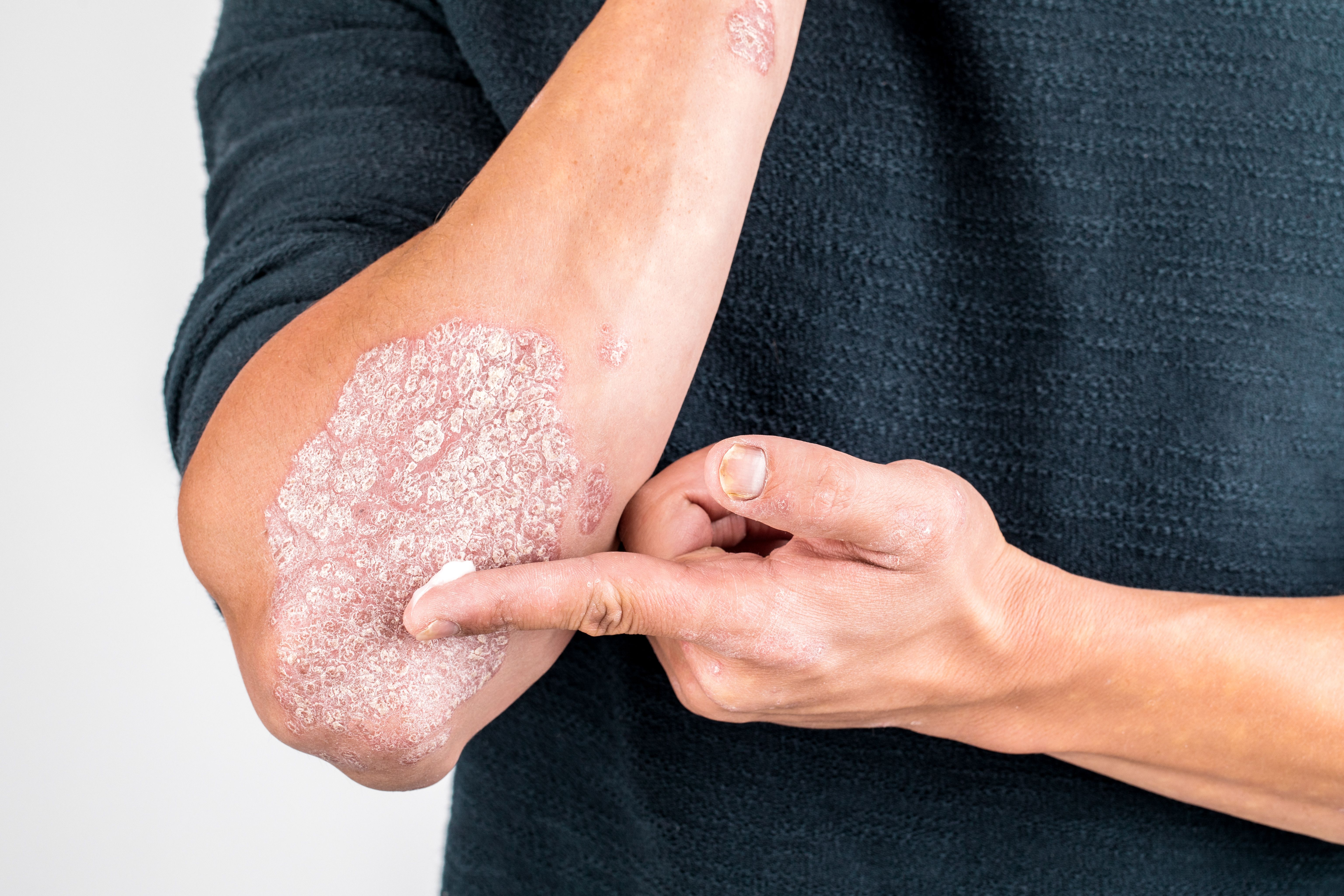- Acne
- Actinic Keratosis
- Aesthetics
- Alopecia
- Atopic Dermatitis
- Buy-and-Bill
- COVID-19
- Case-Based Roundtable
- Chronic Hand Eczema
- Chronic Spontaneous Urticaria
- Drug Watch
- Eczema
- General Dermatology
- Hidradenitis Suppurativa
- Melasma
- NP and PA
- Pediatric Dermatology
- Pigmentary Disorders
- Practice Management
- Precision Medicine and Biologics
- Prurigo Nodularis
- Psoriasis
- Psoriatic Arthritis
- Rare Disease
- Rosacea
- Skin Cancer
- Vitiligo
- Wound Care
Article
Patient Preferences in Topical Psoriasis Treatment
Author(s):
A new study revealed that psoriasis patient adherence is influenced by certain characteristics of topical medications.
While topical therapies continue to be a mainstay of psoriasis treatment, patient adherence is dependent on several characteristics of the medications, according to a new study.1
Researchers at the center for dermatology research in the Department of Dermatology at Wake Forest School of Medicine in Winston-Salem, North Carolina, conducted the study to better understand patient perspectives when it comes to experience, expectations, and preferences.
To do so, they analyzed results from The National Psoriasis Foundation’s 17- question survey conducted in March 2022, which assessed symptoms, treatment modalities, frequency of tropical therapy use, and vehicle preferences.
Of the 411 patients surveyed, 83.9% self-reported moderate psoriasis. 10.2% reported their psoriasis as severe, 5.4% reported it as mild and 0.5% reported it as very severe, with the most affected areas being the scalp (67.9%), arms/elbows ( 62.8%), trunk (61.6%) and hands/feet (40.6%).
Patient Preference
Many participants (76%) reported using topical therapy at least once weekly. Nearly 80% of participants said they would allow 2 weeks for a medication to become effective before stopping it. Participants preferred water-based creams (75.7%), followed by oil-based foam (70.8%), gel (48.7%), solution (42.8%), lotion (21.2%), non-oil-based foam (17.5%), ointment (16.5%), and spray (6.3%).
The formulation attributes rated most important were application feel (55.2%), non-staining (49.9%), quick absorption (46.7%), non-sticky texture (39.7%), ease of application (28.5%), no unpleasant smell (22.4%), non-greasy (16.8%), works quickly (14.1%), absent sting or burn (10%), no adverse skin reaction (9.7%), and once daily treatment (6.8%). If participants did not like a topical treatment's formulation, 74.7%) aid they would discontinue the use of the treatment after a week. Additionally, more than 40% of patients said that they would contact another dermatologist if their topical medication caused a reaction.
Topical medications present a particularly unique burden for dermatology patients because they can be cumbersome, difficult to use, poorly tolerated, messy, and time-consuming. In a study of topical treatment adherence among psoriasis clinical trial patients, overall adherence decreased to nearly 50% by the end of an 8-week treatment period, with small upticks in medication use observed around trial visit dates.
First-line treatments for mild-to-moderate psoriasis are topical treatments, including corticosteroids, vitamin D analogs, keratinolytics, calcineurin inhibitors, salicylic acid, and tar.1
fusssergei/AdobeStock

For moderate-to-severe psoriasis, the American Academy of Dermatology recommends considering systemic therapy, including biologics, oral agents, and phototherapy, with the option to use topical medication conjunctively.2 Study authors noted that the characteristics of psoriasis treatment vehicles, and the patients reported willingness to use treatment, may be an essential consideration when planning treatment regimens.
References
1. Curcio A, Kontzias C, Gorodokin B, Feldman S, Kircik L. Patient Preferences in Topical Psoriasis Treatment. J Drugs Dermatol. 2023 Apr 1;22(4):326-332. doi: 10.36849/JDD.7372
2. How Dermatologists Diagnose and Treat Psoriasis. American Academy of Dermatology Association. https://www.aad.org/public/diseases/psoriasis/treatment. Accessed April 20, 2023.
Newsletter
Like what you’re reading? Subscribe to Dermatology Times for weekly updates on therapies, innovations, and real-world practice tips.









